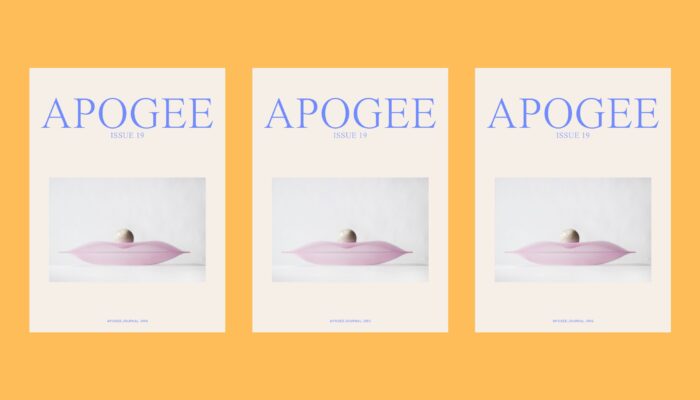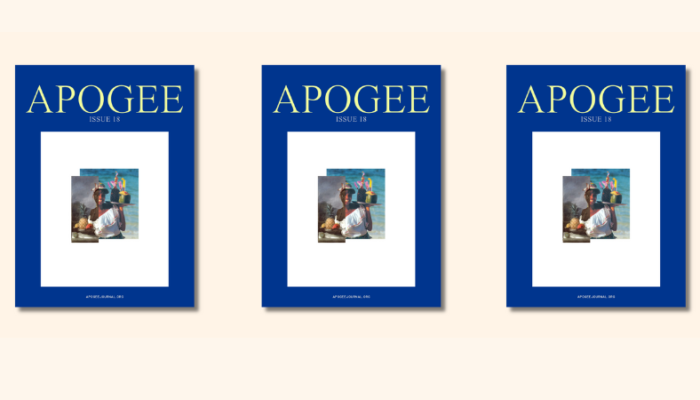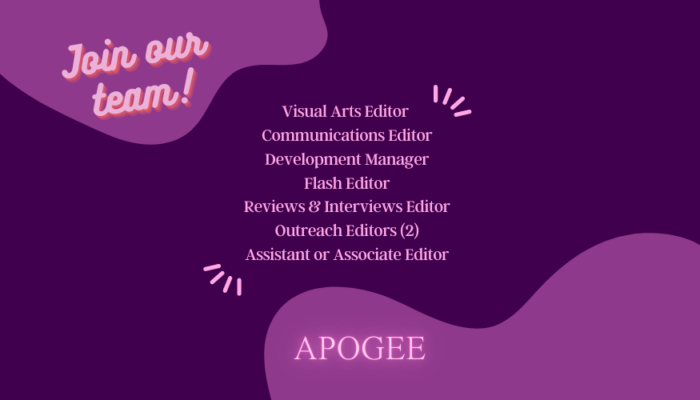Chris Prioleau [CP]: So in your album “ALONE WE PLAY,” available here, one of the recurring motifs seems to be fluidity of identity. Each track is listed as “Devin KKenny as ___”. It’s an act that can be suggestive of a lot: multiple personality disorders, online avatars made flesh, even sketch comedy. How is this motif important to what your vision with this album?
Devin Kenny [DK]: This is important for me because I want to address intentionality in rap and the way that — whether the performer is aware or not — they are contributing to a specific way of viewing a people and culture, since they’re typically of communities and backgrounds that don’t have accurate, nuanced or diverse representations in mass culture,. This became most pronounced in the ’90s “keep it real” era but continues today, even as the formulation of New Masculinity by figures like Drake seems to complicate it. At the same time cultural appropriation is still business as usual and in the US at least Black music becomes the defacto music of visceral passion or id.
The assuming of an avatar does recall experiences online, but it also recalls “code switching” which is something that people of color living as minorities have experienced for generations. This awareness I think is a new one for people part of the dominant culture who have a certain kind of privilege as a result of that position.
CP: I’m glad you’re bringing up Drake in that context. I’ve been a fan of his since his Degrassi days and I’m curious as to what you mean by New Masculinity. I’ve always been skeptical of some of the criticisms of Drake, they seem like they’re defending a very slim and minute definition of what a black male can be.
DK: With Drake, Childish Gambino, Chance the Rapper and a host of others that are really excelling, there’s a way in which they follow in the footsteps of Lil Wayne and Kanye, and definitely affect-master Lil B, by showing you can still wield ‘power’ as an Othered male who ‘speaks his mind’ while showing vulnerability and emotions other than anger, without competitiveness or self-aggrandizement. In other words, you can still be “a boss” and complain all the time, in fact, having a devil-may-care attitude about with whom you share your complaints can solidify your position as the boss. According to his music, Drake’s emotional vulnerability rewards him with desirable women and financial stability. He “paid the cost to be the boss”, so to speak. And that cost is the memes : “Drake that type of n*gga” and the overall portrayal of Drake as effeminate or soft, in addition to be characterized or caricatured as: the unlikely champion, the sidekick turned superhero, the underdog, the little brother.
CP: What about the individual names of the people in each song? Are they meant to be different characters?
DK: The names of the people are entry points for ‘reading’ the song at times, and at other times are departure points for loosely related events and concepts. For example, on Alone We Play (I’ve also used this alter ego thing on other projects like Studio Workout) proposals for splitting up California into multiple smaller states or allowing the Silicon Valley to secede and operate autonomously gets mentioned via one of the alter egos. Sometimes they follow rap name conventions, other times they sound like Electronic musicians, and other times have names like corporate entities.
CP: From what I’ve seen, my favorite alter ego of yours is Wieder Care, the emo character that you do in your cover of “Many Men” by 50 Cent. I think your re-imagining of the song as a kind of emo anthem (“many men wish death on me…I can’t cry no more…have mercy on me”) was really brilliant and funny. How did the idea come about?
DK: With Wieder Care (a play on wiederkehr) I was addressing how online people can find solidarity and communities of support which may be unavailable in their town, or it can be used to build that up, like I came into hip-hop culture online before I ever seriously sought it out in my neighbourhood Hyde Park in Chicago.
CP: What’s interesting to you about the intersection of emo culture and blackness?
DK: As a youth I was skeptical of black emo kids but I think it was because of problematic ideas about blackness and how one experiences and works through malaise. Also the majority of emo kids I knew were Latino which in and of itself was also a complication of the narrative that makes one associate it solely with white American suburban sorrow. It took me a long time to get the work out as I originally thought of the 50 cent song as emo back in the early 2000s. It also goes without saying that what was emo or emotional hardcore when it was beginning in the late 80s early 90s is not the pop punk inflected emo of Fall Out Boy that was influencing some of my peers as a teenager. Shout out to Pete Wentz. Wieder Care has returned now as a kind of normcore guy. Also i have to give a lot of credit to Devonte Hynes for really addressing these topics early on and making amazing music at the same time.
CP: “How one experiences and works through malaise”. Can you talk about that some? It seems relevant to much of your work.
DK: Sure, I mean the myth I was raised with (and I’m sure many others as well) was that the only thing to do with malaise and sorrow is convert it to anger, aggression, and competition, and use it to best your opposition, find something better than what you had, make people jealous, or make people give you your respect. “You people are gonna respect me if it kills you” — Dizzee Rascal. This way of being seems limiting and toxic, although lots of very powerful culture came out along with these principles. I’m thinking specifically about hip-hop, but I’m sure a similar thing could be said about grime, or several other genres and subcultures that have functioned as the voice of the voiceless.
CP: Some of the themes we’re discussing also came into play in “meme performance of trayvoning/Clefa”. How did it feel to cast yourself as the victim in such a recognized and racialized tragedy? How did people respond to the performance? Did you get a lot of criticism?
DK: I did that performance while in Mexico City, the day after the non-indictment so it was definitely resonating differently than elsewhere. I wasn’t so much replaying the tragedy as much as replaying or making more rigorous the activity of Trayvoning, which had been done for months after the headlines were made about him being murdered. I saw people re-posting images of Trayvoning (like planking) on what I imagined was a distant and rapid gesture, that people would do for a picture they would later upload, I made into a 15+ minute performance. It’s hard to tell in the photo but I wasn’t laying down with all my weight released onto the floor, my muscles were actually tensed and I was on a bit of an angle, so yeah, it became acutely painful, but maybe that was just something for me. At the time it was intense because the room was silent except for the Migos/Drake “Versace Versace remix” playing from a little speaker near me (“This is a gated community, please get the fuck off the property” is eerily similar to the sentiment echoed by George Zimmerman in his neighborhood watch actions), but about 10 minutes in people started getting really uncomfortable. I was walked over, people took photos, there was a bowl nearby with coins in it and people put in money… it was strange. The performance was also informed by an experience I had on the train in DF where it was rush hour and super crowded of course and there was a squishy thing that I felt under my foot which startled me and I turned and noticed it was a boy passed out. I flipped. I looked around, and there were these business men who saw it and kind of smiled and shrugged, and I was like…oh I need to pick up this kid and take him to the police in the next station or something so he can get medical attention or something (first thing that came to mind, not a good plan at all but yeah). Anyhow, it got more and more crowded and I was now closer, trying to make sure he didn’t get crushed, and then a guy came behind me and nudged the kid with his foot, hoping to find space to stand and the child, who looked about 10 or so, snapped awake, but with still heavy lidded eyes and got up, black liquid smeared on his hands and mouth. I think he was a shoe shiner. I asked my friend who had been living in Mexico for a while what that was about and she said he passed out because he was using this particular drug that is huffed. It’s very cheap and somewhat dangerous. So when I did the Trayvoning thing I figured either that kind of image would be recalled, or Trayvon Martin. Those that were aware of the Trayvon Martin case spoke to me afterwards, quite shaken, and there were even tears in some folks’ eyes, and those that were not aware took it more as a sobering slice of life/anti-spectacular performance, but I got a lot of responses from people definitely.
CP: Wow, that’s such a crazy story. Part of what I’m into about “meme performance of trayvonving/Clefa” is that it takes what was a massive and personal tragedy for so many people, a tragedy that was broadcast to many of us through new media –through the internet, through 24 hour news punditry — and it compresses the event into this loop that removes a lot of the language that surrounded the event and our reactions to it, but maintains its connection to forms of new media. It’s not just a “this could happen to any of us” piece but also a commentary on the way we receive and process information in this age. How do you think the internet and new media have affected your personal and emotional responses to the Trayvon Martin murder, and/or the other high profile murders of Michael Brown and Eric Garner (among many many others)?
DK: There’s a way in which the internet becomes a more extreme version of the thing that 1990s ‘news junkies’ were hooked on, but it’s more effective and addictive even because it’s catered specifically to your tastes and interests. I struggle to use the social network and internet as a means of increasing consciousness and connection with people. It can be very numbing/depressing to be in the feed for hours, so it’s definitely a challenge to be a constant source/be rigorous with what I repost while not exhausting and leaving people downtrodden and paralyzed.
CP: I’d like to switch gears a bit and talk about your relationship with hip hop and hip hop culture. You yourself rap, so I’d assume you’re a fan of it in a lot of ways, but I’ve also observed a distrustfulness of hip hop culture as being a theme in some of your work. There was the video that you sent featuring a narrative by a former music executive who alleges to have sat in on a secret meeting during the early 90s where record companies are offered deals by executives with the prison industry to push gangster rap on the young black masses. You also, in the email you sent to me, spoke about rap music and its connection to oppressed communities it once championed. What’re your thoughts on the current landscape of hip hop culture? Do you feel that the commercialization of rap and hip hop music has caused the culture to betray the people it was created to speak for?
Additionally, you seem to be making connections between hip hop culture and network/social media culture. The song “Keep it to Yourself” (my favorite song on the album) comes to mind pretty heavily here (“They don’t want to hear your confessions”). What’re your thoughts on the connection there?
DK: Hiphop culture is fine, it is thriving all over the world. Peace, Unity, Love, and Having Fun. “Does hip hop have the body type to pull off that outfit?” “Where is hip hop going?” like Busdriver says. I think what’s called urban music often functions as an ideological apparatus though and a way for people to vicariously experience a life of precarity, or excess that they cannot otherwise access, often while still maintaining racist, sexist, and homophobic ideas. In the maintaining of these kinds of ideas, who is served? Who benefits?
The video, is an interesting one…and most of the people I have shown it to have gotten really shaken by it, or they tell me it reminds me of this viral text they read a few years ago. I think it points to how private prisons (a huge industry in the US and one rapidly expanding) are used by corporations as a supplement to the cheap labor they get overseas, even if it’s not the entertainment industry that works in this way, many retailers and popular companies use or have used prison labor. And then there’s The Vanguard Group which as of a year ago was the largest stakeholder in the Corrections Corporation of America. The CCA over the past 2-3 years has been contacting every state in the continental US about purchasing their prisons, while promising to keep a minimum 90% occupancy rate.
That song “Keep It To Yourself” I initially conceived of with artists/writers/programmers/creative people like Shawne’ Michaelain Holloway, Jennifer Chan, Ann Hirsch, Elizabeth Mputu, and others in mind, but also people just trying to navigate online dating sites et cetera, and the idea of the internet as a giant ‘boys bathroom’ where you can write graffiti messages or make lewd drawings seemingly with no consequence. I was really troubled by the idea of these artists being brave enough to really confront the way that various social currents impact their bodies and psyche, and do it in a compelling way, only to be rewarded with a bunch of dudes telling them unsolicited information about their own insecurities, fetishes, fantasies, etc. I mean even if you’re on a fetish-centric social network, I would hope that all the rules of common courtesy and trying to treat people with dignity would apply, but yeah, that’s a problem that has been exacerbated online. With regards to rap though, if you’re making music about selling drugs or having connections to people who are passionate about gun violence, in order to make money, it seems dangerous, that is you could be waiving your (if American) 5th Amendment rights to avoid self-incrimination, or one may argue, profiting off the misery or misfortune of others. This is with the assumption that most people don’t want to be violent or benefit off of the debilitating addictions of others if they don’t have to. Online it can function the same way except the mediation is different. It may be through meme photographs of impoverished people doing non-normative stuff in public (“being ratchet”), or attempting to make viral video verite (ypo), which one could read as being parasitic, because only the documenter enjoys the fruits of the page views (whether they monetize it through YouTube, or it becomes popular enough that they can get ad revenue, or use it as the launch of a music career et cetera). There’s a relationship between the concept of ‘dry snitching’ and the oversharing which is supported in online spaces.
CP: Final question, what’re you working on currently?
DK: Additional material for an expansion pack to Alone We Play, just because it’s fun, I’m also working on organizing this group exhibition which is dealing with pervasive misogyny and imperialistic practices that somehow persist in post- net art and fine art spaces, some talks (Brooklyn Museum and Bruce High Quality Foundation University, etc.), some t-shirts with www.to.be, videos for Alone We Play…a solo in LA dealing with ‘posts’, trying to start a mental and physical health regimen…cooking more…
CP: What’re you cooking?
DK: Sopa to ward off clones of SOPA. I’m getting into stir-frying too.
DEVIN KENNY is an interdisciplinary artist, writer, and independent curator. He also produces music under the Devin Kenny moniker, amongst others. Hailing from the South Side of Chicago, he relocated to New York to begin his studies at Cooper Union. He has since continued his practice through the Bruce High Quality Foundation University, Skowhegan artist residency, SOMA, and collaborations with DADDY, pooool, Studio Workout, Comotroovay-sa, Wild Isle, and Adult Contemporary. He has presented work at various art and music venues in New York City, Chicago, Los Angeles, and elsewhere including: Recess, Het Roode Bioscoop, St. Cecilia’s Convent, Freak City, and Santos Party House. He received his MFA in 2013 from the New Genres department at UCLA and is a recent alumnus of the Whitney Independent Study Program. His work can be found at www.devinkenny.info, devin-kkenny.bandcamp.com, and soundcloud.com/devin-kkenny. You can also find him on Twitter @devinkkenny.




